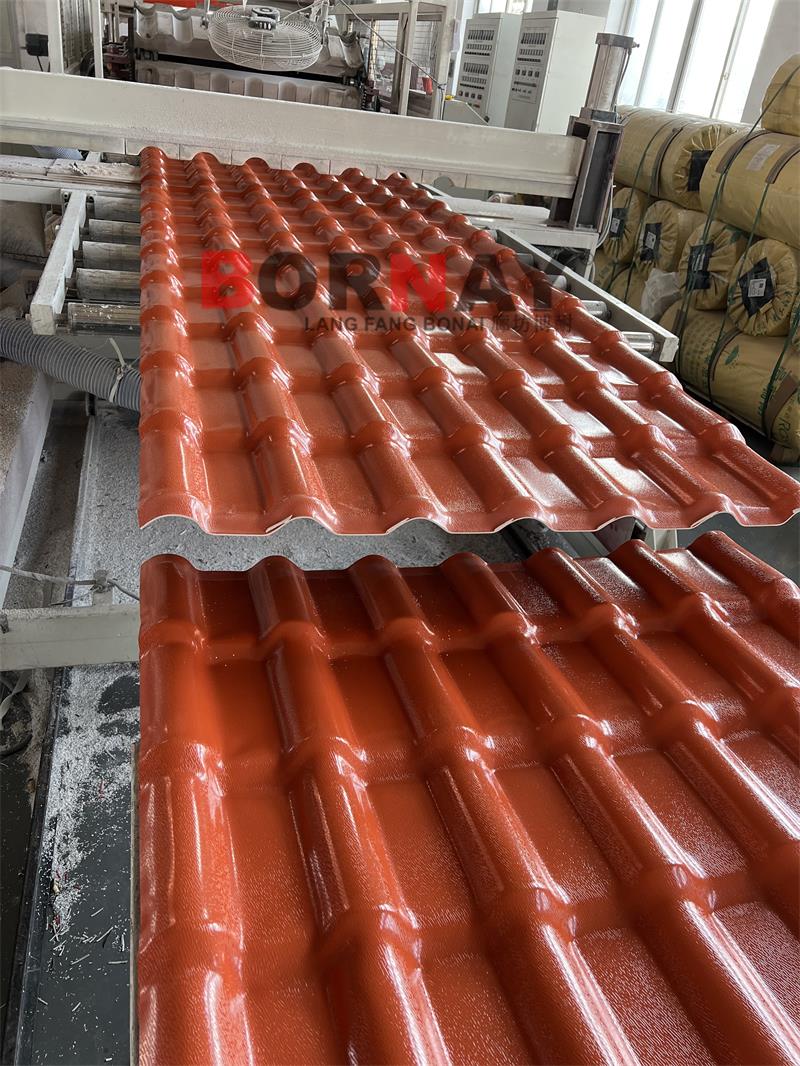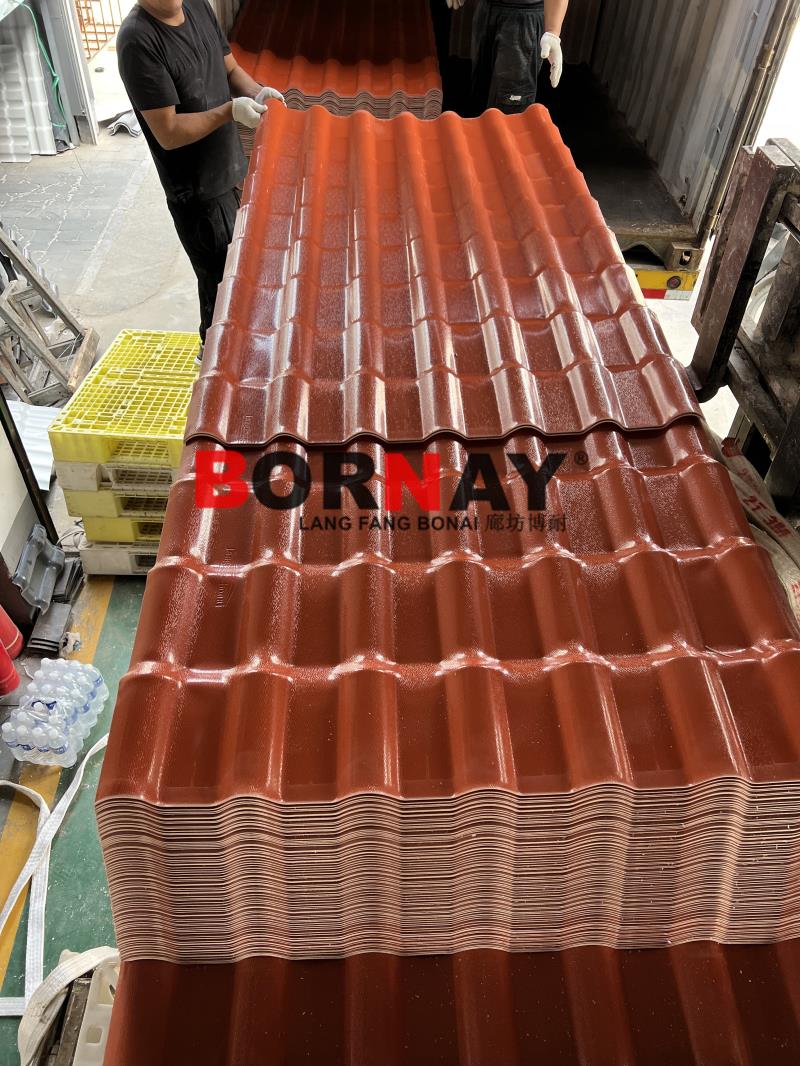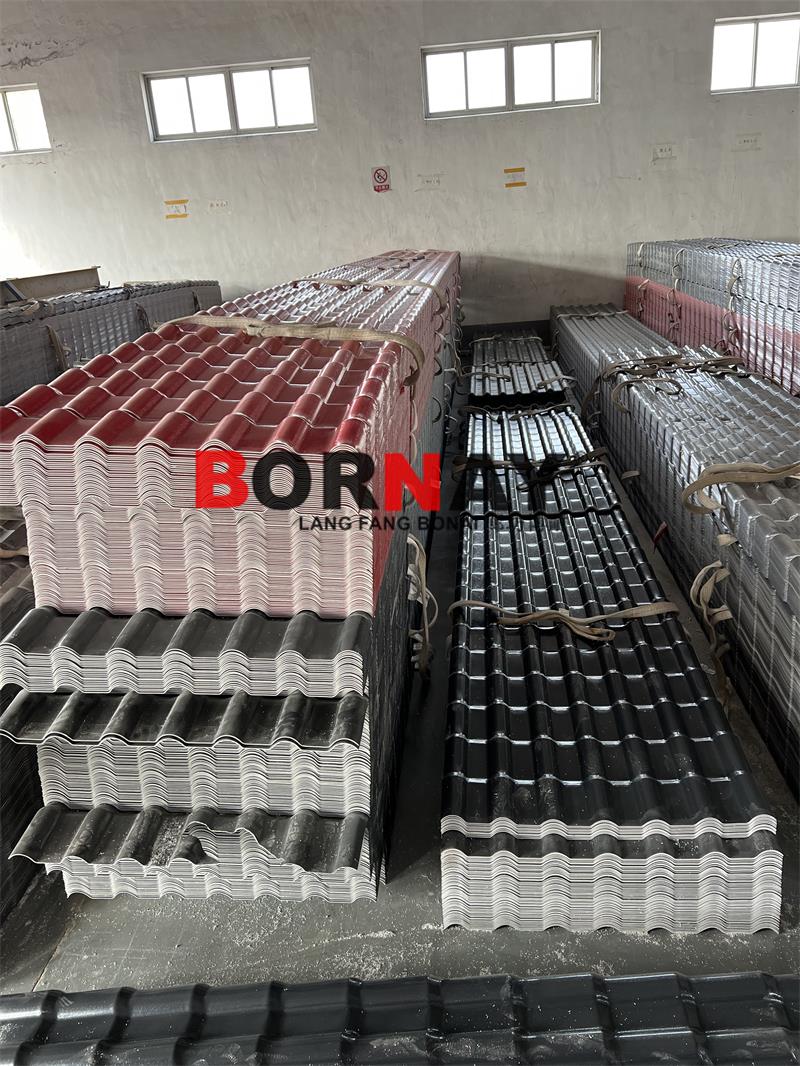bonai@tilefrp.com
PVC树脂瓦
描述
PVC树脂瓦是一种新型高科技屋面建筑材料。它是由GE的超耐候工程树脂ASA和PVC两面共挤而成。外形美观,立体效果强,适用于永久性建筑屋顶。
优势
- 色彩丰富、耐用
- 质轻、防水、坚韧、保温、隔音
- 防腐、防风防震、抗污染、绿色环保
- 防火、绝缘、安装方便
- UPVC synthetic resin tiles, also known as uPVC roofing tiles or simply synthetic resin tiles, are roofing materials made from unplasticized polyvinyl chloride (uPVC). These tiles are engineered to provide a lightweight, durable, and cost-effective solution for various roofing applications. Here's a detailed overview:
1. Material Composition: UPVC synthetic resin tiles are manufactured from unplasticized polyvinyl chloride (uPVC), a rigid and stable thermoplastic material. The manufacturing process involves extruding uPVC resin into sheets or profiles, which are then molded into tile shapes using heat and pressure. These tiles may also contain additives such as stabilizers, pigments, and UV inhibitors to enhance their performance and durability.
2. Lightweight and Durable: One of the key advantages of uPVC synthetic resin tiles is their lightweight nature combined with high durability. Despite being lightweight, these tiles offer excellent resistance to impact, weathering, and corrosion, making them suitable for use in various climates and environmental conditions. Their durability ensures long-term performance with minimal maintenance requirements.
3.Waterproof and Weatherproof: UPVC synthetic resin tiles are inherently waterproof and weatherproof, providing reliable protection against rain, snow, hail, and UV radiation. The smooth surface of the tiles prevents water infiltration, while UV inhibitors prevent color fading and degradation due to sunlight exposure. These properties make uPVC tiles ideal for roofing applications where weather resistance is critical.
4. Easy Installation: UPVC synthetic resin tiles are designed for easy and efficient installation, reducing labor costs and construction time. The tiles are lightweight and can be easily cut, drilled, and installed using common roofing tools and techniques. They often feature interlocking profiles or fastening systems that ensure secure attachment and watertight seals between tiles.
5. Variety of Designs: Synthetic resin tiles are available in a wide range of designs, colors, and profiles to suit different architectural styles and aesthetic preferences. Whether replicating the look of traditional clay or concrete tiles, or offering contemporary designs, uPVC tiles provide versatility and flexibility in roofing design.
6. Insulating Propertie: Some uPVC synthetic resin tiles are engineered with insulating properties, helping to regulate indoor temperatures and reduce energy consumption. These insulated tiles can contribute to improved thermal comfort and energy efficiency in buildings, especially in hot or cold climates.
7. Fire Resistance: UPVC synthetic resin tiles typically exhibit good fire resistance properties, meeting relevant fire safety standards and regulations. They have a high ignition point and are self-extinguishing, reducing the risk of fire spread and damage in the event of a fire.
8. Low Maintenance: Compared to traditional roofing materials like clay or concrete tiles, uPVC synthetic resin tiles require minimal maintenance over their lifespan. They are resistant to mold, mildew, and algae growth, and can be easily cleaned with water and mild detergent if necessary.
In summary, uPVC synthetic resin tiles offer a versatile, lightweight, and durable roofing solution suitable for residential, commercial, and industrial buildings. With their excellent weather resistance, ease of installation, and low maintenance requirements, these tiles provide an attractive and cost-effective alternative to traditional roofing materials.
特点:
| 属性 | 细节 |
| 材料 | PVC+树脂ASA |
| 品牌 | 廊坊博耐 |
| 长度 | 11.8m/11.6m/5.8m/2.9m或定制 |
| 宽度 | 880mm/1050mm/T1130MM或定制 |
| 厚度 | 1.8毫米/2.0毫米/2.3毫米/2.8毫米/3.0毫米 |
| 颜色 | 枣红、中国红、水木灰、海蓝、砖红、翠绿 |





